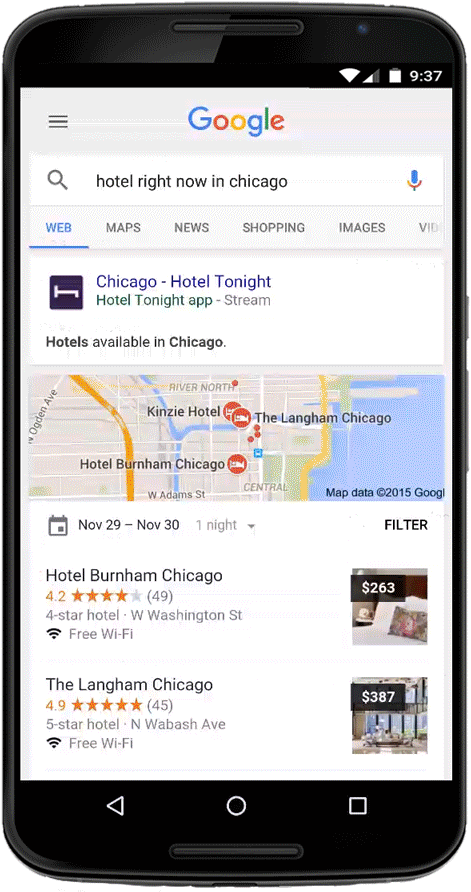As time has progressed over the years, Google has been showing more and more content on search results pages, resulting in people having to click over to third-party websites for fewer and fewer things.
Do you think Google is improving the web by showing more content in its search results? Share your thoughts in the comments.
Google has been criticized for “scraping” content from websites for years, but it’s clear that the practice is showing no signs of slowing down.
A recent study from Stone Temple Consulting looked at over 855,000 queries to see how many returned a rich answer box (of which there are several varieties). Based on the new findings, the growth in this type of result has been about 9% since February.
“From an apples to apples perspective, the numbers grew from 22% in February to 31% now, so the growth was substantial,” a spokesperson for Stone Temple told WebProNews in October.

Around this time last year, Google began showing song lyrics as one type of rich answer result. We assumed this would be a devastating blow to websites dedicated to this vertical.
Google’s lyric results typically show some or all of the lyrics to a song, and include a link to Google Play where you can see the full lyrics, subscribe to Google’s service or simply buy the song. In effect, nearly every lyric search is an ad for a product you can buy from Google Play in addition to being an ad for Google Play in general.

Now, Google has been busted appearing to have “scraped” lyrics to a song directly from one of the lyrics sites these results are replacing while still linking to its own Google Play store rather than the site it got them from. And on a likely high volume search at that.
Adele’s song Hello is currently one of the most popular songs. When a user searches for “adele hello lyrics” they’re presented with this:

At first glance, it looks just like any other result of this nature, but as others (Yvo Schaap, Barry Schwartz) have pointed out, there are some giveaways that indicate Google got this content from one of the big lyrics sites, Metrolyrics. Those giveaways are the inclusion of the numbers that appear at the end of some of the lines and the “byGuiTheGreat” part.
The numbers refer to comments on Metrolyrics. While the numbers have increased since Google apparently grabbed the content, you can see that they’re placed at the same locations in the lyrics on Metrolyrics’ site:

And guess who’s been leaving comments on this song on Metrolyrics:

That’s right. GuiTheGreat.
If Google is indeed getting this content from Metrolyrics, imagine how many page views that site is missing out on for this particular search by Google linking to Google Play instead of Metrolyrics. And what if this is happening for other searches? What if it expands to more categories beyond lyrics?
In January, SearchMetrics released lists of the top winners and losers of 2014 in terms of search visibility. The “falling stars” list was littered with lyrics sites.
eLyrics.net saw a 92% drop. LyricsMode and Sing365 each fell 60%. LyricsFreak dropped 59%. MetroLyrics dropped 12%. Last.fm, which links to MetroLyrics for song lyrics saw a decline of 18%.
Keep in mind, this was only a month after Google began showing the lyrics in the first place, and nearly a year has passed since then – a year which based on Stone Temple’s findings has seen Google increase the amount of rich answers it shows in search results.
In February, eLyrics.net confirmed its drop in search visibility to WebProNews, calling it “unfortunately true”. Interestingly, it attributed the drop in traffic not as much to Google showing lyrics on search results pages, but to both Panda and Penguin. It said it had not seen drop-off from other search engines, but only Google.
Asked if the site would be able to survive without search traffic, eLyrics said, “I doubt that, but we are pushing hard to stay online.”
They also said they had already decreased their number of staff.
Is Google hurting the web with rich answers? What do you make of the alleged Metrolyrics scraping? Share your thoughts in the comments.
Lead image via Google






















![Yahoo To Discuss Selling Web Business This Week [Report]](https://dev.webpronews.com/wp-content/uploads/2015/12/Screen-Shot-2015-12-11-at-8.54.37-AM.png)











